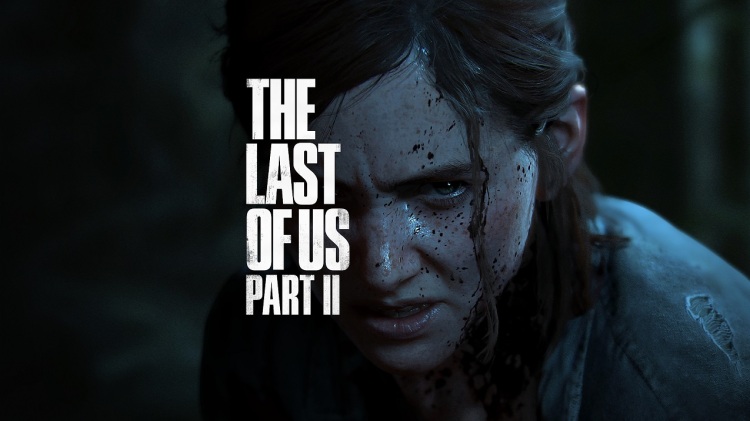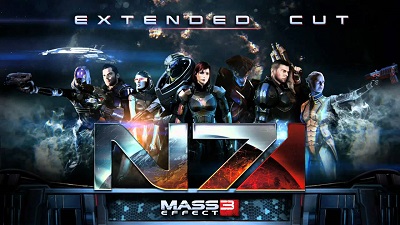There are plenty of projects in recent years that I took issue with. When passions run high, it’s natural to want to find an outlet for whatever anger or frustration we might have about a film, game, or television series. Just in the last few weeks I’ve looked at three big titles that I felt didn’t work for one reason or another – Game of Thrones Season 8, The Rise of Skywalker, and The Last of Us Part II.
All of these titles, and many more besides, have something in common: fans have set up online petitions to erase, edit, or rewrite them to fit what they think should have happened. Some of these petitions can get tens or even hundreds of thousands of signatures on websites like change.org – but what’s the point? Even if a petition got a million signatures, does anyone seriously think that Disney and Lucasfilm are going to say “oh okay then, I guess we’d better remake The Rise of Skywalker”?

Fan petitions can be a legitimate way to protest a decision in an entertainment product that you don’t like, and in that sense they arguably serve a purpose. I can understand the desire to make one’s voice heard – my website, after all, serves a similar purpose for me. Did anyone at Lucasfilm or Disney read my tear-down of The Rise of Skywalker? Doubtful. Even if they did, would it make one iota of difference? Absolutely not. But that doesn’t stop me writing. I’ve always loved to write, and I run this website just for fun.
As long as we remember to treat fan petitions in the same way as we might treat a YouTube comment or scathing Twitter post – i.e. by not expecting anything to come of it – perhaps it’s a harmless phenomenon. I think it’s comparable in that respect to review-bombing (the practice of leaving large numbers of negative reviews on sites like Metacritic and Rotten Tomatoes). As fans and members of the audience, we want to make our voices heard, especially when we feel a title has been disappointing. And similarly to review-bombing, seeing that hundreds or thousands of people share your opinion can be a good feeling. The desire to complain is as old as humanity itself; one of the oldest extant examples of writing is a complaint about poor-quality copper from ancient Sumeria! So it shouldn’t be a surprise that people in 2020 are using the internet to make their voices heard and to take complaints directly to those behind the shows, games, or films that they feel didn’t succeed.
The issue can be that some people take petitions very seriously. They consider their opinion to be the only one that’s acceptable and valid, and will attack anyone who disagrees, often viciously and offensively. In the aftermath of 2017’s The Last Jedi this happened a lot – many of the film’s detractors insisted it was “objectively bad”, as if that were the only opinion and the end of the discussion. The Last Jedi was not objectively bad – they just didn’t like it. In their subjective opinion. Nor can The Rise of Skywalker or The Last of Us Part II be said to be “objectively” bad. Storytelling is always going to be subjective, and there will be a range of opinions from the overwhelmingly positive to the horribly negative depending on the individual.

Some of this comes with age – as you get older, you meet more people and get to see firsthand a variety of opinions on every topic. Getting out of a bubble is important – if you only ever talk to like-minded people and never try to get an opposing viewpoint or broaden your understanding of a topic, you’ll never have a chance to grow. This doesn’t just apply to entertainment, but to everything else in life too. Social media platforms like Facebook, YouTube, Twitter, and the like can amplify these bubbles – creating groups and networks where only one side of an argument is discussed and where only one opinion is acceptable. Often, at least in the context of entertainment, this is a negative, critical opinion, but not always.
Companies care about their bottom line. In practically every franchise, hardcore fans are a tiny fraction of the overall audience, and as such, companies can flat-out say that they don’t care what you think. At the end of the day, if their product is making money and has been successful, the opinion of a tiny number of people who disliked it or who felt its narrative choices were wrong does not matter to them in the slightest. And often, what you’ll find is that controversy can be turned into a selling point. A fan petition gets more people to hear about the title in question, and some of them will go on to pick it up to see what all the fuss is about – resulting in more sales, not fewer.

I don’t sign petitions on entertainment topics as a rule. I have, very occasionally, lent my name to petitions on other issues when I felt strongly about something, but never on an entertainment subject. Before I founded the website I would usually just keep my opinions to myself or perhaps discuss things with friends, but of course nowadays I have this outlet! However, I don’t want to say you shouldn’t sign a petition if you feel you want to and that it warrants your time and attention. Just don’t expect a response, and especially don’t expect your petition to accomplish its goal of having that episode or film you hate struck from canon.
There are some very specific cases where fan feedback in a more general sense has led to changes. The one that springs to mind is Mass Effect 3 in 2012. After releasing to huge controversy for its pick-a-colour ending, EA and Bioware released a free piece of downloadable content – the Extended Cut – which provided some more dialogue, expanded some cut-scenes, gave more explanation to some story points, and generally padded the ending a little. This wasn’t in response to a single petition – though there was a popular one at the time – but rather it was a response to broader feedback from reviewers and fans that was practically universal. The changes they made through the Extended Cut didn’t fundamentally change the game – or even really address the basic issues people were complaining about – but at least fans felt that their feedback had accomplished something.

Overall, though, one success story does not count as proof of concept. Fan petitions are ignored by big companies, and often mocked online as people ask: “do those whiny fans really think their petition is going to make a difference?”
Partly the reason why is that a petition is just a collection of names – in online petitions, often patently fake names like “Deez Nuts” or “Anony Mouse”. It takes almost no effort to lend one’s name – fake or real – to such a petition; most participants must merely write two words and then click or tap off the petition. When I see critical comments on social media, while many of them can suffer from poor spelling and grammar and be silly, nitpicky, or even rude, at least the individual writing the comment has made a basic attempt to string more than two words together to make their point or express their dislike. In that sense, fan petitions rank even lower than social media comments or short posts on Twitter. If they take so little effort, it makes sense why they’re so easily dismissed, and why it takes an exceptional case of negative feedback – which may or may not include petitions – to convince any big company to make even minor concessions, such as in the case of Mass Effect 3.
I’m not in the business of telling people what to do. And if you want to create a petition or sign a petition calling on a company to change or cancel a film, series, game, or episode, that’s your call. Nor am I saying that petitions in general are a bad idea – in the sphere of politics and when dealing with other issues out there in the real world, a well-constructed petition on a specific issue can be effective. They just tend not to be when it comes to entertainment companies. At the end of the day, most people don’t take things like Star Wars or Star Trek as seriously as we do.

Photo Credit: Trekking with Dennis
The desire to express how one feels about something is natural and a fundamental part of the human condition. But there are better ways to go about it than signing a fan petition that will invariably fail to accomplish anything. Letter-writing may be a lost art, but I think many people will find that actually writing out their thoughts and opinions will not only be cathartic but can also be an enjoyable experience. Whether they choose to write directly to the company in question or do what I do and publish reviews and criticism in a publicly-accessible forum is a personal choice – some folks on the more introverted side of the spectrum may find the former is preferable, for example. I’d recommend giving it a try, in any case. Not least because I love stumbling across new blogs and critics to read!
In the days of the internet and social media, it’s easier than ever for fans to critique their favourite franchises, and storytelling decisions in particular. It’s also easier than ever to get sucked into social media bubbles where everyone is expressing differently-worded forms of the same opinion, and to make the mistake of thinking that opinion is objective truth or the only valid position to take. From the point of view of companies, while some feedback can be valuable, and while they undoubtedly take notice of the rare cases of overwhelming backlash online, if at the end of the day their film, game, or series is popular and profitable, they don’t really care. And they care even less about fan petitions. Sorry.
All films, games, and television series mentioned above are the copyright of their respective studio, distributor, network, developer, publisher, broadcaster, and/or corporation. This article contains the thoughts and opinions of one person only and is not intended to cause any offence.

